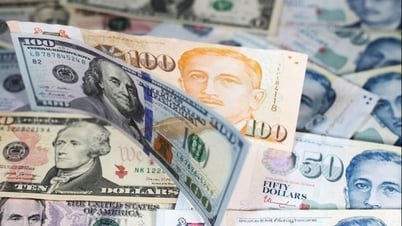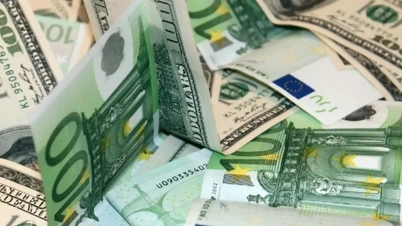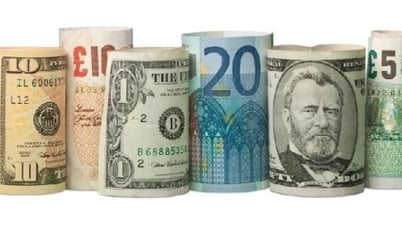The head of the International Monetary Fund (IMF) mission in Japan, Nada Choueiri, said that a weak Yen is beneficial to the country's economy because it has a positive impact on export activities rather than increasing import costs.
 |
| The benefits from increased exports due to a weak yen have outweighed the increased cost of imports for Japan, a 'very outward-looking' economy. (Source: Kyoto) |
Ms. Choueiri recommended that the Bank of Japan (BoJ) should continue to be cautious and should gradually raise interest rates, as the possibility of inflation remains uncertain.
The Yen has continued to fall against the USD recently due to expectations that the interest rate differential between the US and Japan will remain high.
This has the Japanese government concerned about the negative impact on households due to increased import costs.
However, Ms. Choueiri said that the benefits from increased exports due to a weak yen outweighed the increased import costs for Japan, a "very outward-looking" economy. Therefore, the depreciation of the yen is basically beneficial to the growth of the Land of the Rising Sun.
The fall in the local currency has prompted Japanese Finance Minister Katsunobu Kato to warn that recent "unilateral, rapid" moves in the yen need to be "closely monitored".
After ending its 10-year stimulus program in March 2024, the BoJ raised short-term interest rates to 0.25% in July 2024 and signaled it would continue to raise rates if the economy progresses well toward its 2% inflation target on a sustainable basis.
The IMF forecasts that Tokyo's inflation will reach 2% sustainably, thanks to domestic demand, thereby meeting the prerequisite for raising interest rates.
However, the BoJ needs to be cautious in raising interest rates due to various risks, such as the potential negative impact on exports from trade fragmentation, the possibility of weakening consumption and wage growth, as well as the impact of yen fluctuations on inflation.
In its World Economic Outlook report released this month, the IMF forecast Japan's economic growth would accelerate from 0.3% this year to 1.1% in 2025 as rising real wages boost consumption.
Japan's new Prime Minister Shigeru Ishiba has pledged to draw up a supplementary budget to finance another large-scale spending package after the October 27 general election.
Source: https://baoquocte.vn/dong-yen-suy-yeu-kinh-te-nhat-ban-thu-loi-291503.html


![[Photo] Discover unique experiences at the first World Cultural Festival](https://vphoto.vietnam.vn/thumb/1200x675/vietnam/resource/IMAGE/2025/10/11/1760198064937_le-hoi-van-hoa-4199-3623-jpg.webp)



![[Photo] General Secretary attends the parade to celebrate the 80th anniversary of the founding of the Korean Workers' Party](https://vphoto.vietnam.vn/thumb/1200x675/vietnam/resource/IMAGE/2025/10/11/1760150039564_vna-potal-tong-bi-thu-du-le-duyet-binh-ky-niem-80-nam-thanh-lap-dang-lao-dong-trieu-tien-8331994-jpg.webp)
![[Photo] Opening of the World Cultural Festival in Hanoi](https://vphoto.vietnam.vn/thumb/1200x675/vietnam/resource/IMAGE/2025/10/10/1760113426728_ndo_br_lehoi-khaimac-jpg.webp)

























![[Photo] Ho Chi Minh City is brilliant with flags and flowers on the eve of the 1st Party Congress, term 2025-2030](https://vphoto.vietnam.vn/thumb/1200x675/vietnam/resource/IMAGE/2025/10/10/1760102923219_ndo_br_thiet-ke-chua-co-ten-43-png.webp)



































































Comment (0)